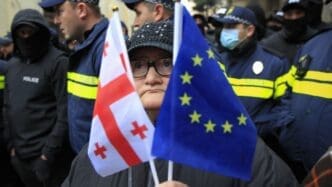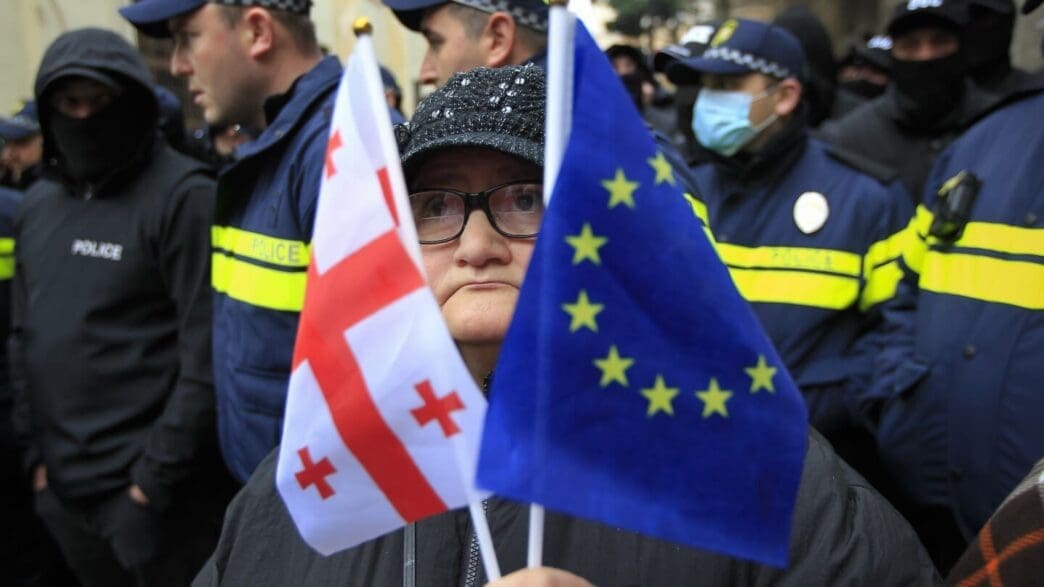Georgia’s political landscape witnessed a surprise twist as the governing Georgian Dream party nominated Mikheil Kavelashvili, a former soccer player, as its candidate for the upcoming presidential election. This decision follows a contentious parliamentary election last month, which led to widespread protests and an opposition-led parliamentary boycott.
The nomination of Kavelashvili, a former national team player and British Premier League striker, comes at a time when Georgia is grappling with internal divisions and external pressures. His selection by the ruling party was largely expected to succeed, given the party’s control over the 300-seat electoral college that will elect the new president on December 14.
The recent parliamentary elections, held on October 26, were marked by controversy and accusations of election tampering. The elections were widely viewed as a referendum on Georgia’s aspirations to join the European Union, a process which has been fraught with complications. The opposition has accused external influences, notably from Russia, of swaying the election outcomes, and as a result, declared a boycott of the new parliament.
Adding to the political tension, outgoing President Salome Zourabichvili has refused to acknowledge the legitimacy of the election results and abstained from attending the parliament’s inaugural session. Her actions highlight the contentious nature of the elections and underscore the ongoing political discord within the nation. Zourabichvili, elected by popular vote, will see her six-year term conclude next month.
In a significant political shift, the Georgian electorate had previously approved constitutional changes eliminating the direct election of the president. The new system places the power of election in the hands of an electoral college comprised of parliament members, municipal council members, and representatives from regional legislatures. This change effectively guarantees Kavelashvili’s election, given Georgian Dream’s majority control.
Critics have raised alarms over Georgian Dream’s current trajectory, accusing the party of sliding towards authoritarianism and aligning too closely with Moscow’s interests. The party’s legislative actions, reminiscent of Russian policies, have drawn significant concern. Notably, the party enacted a law targeting organizations with over 20% foreign funding to register as aligned with foreign interests—a move perceived as stifling dissent.
Mikheil Kavelashvili, as a member of parliament since 2016 and co-founder of the People’s Power political movement, has been vocal in his criticisms of external influences on Georgia’s political environment. In his parliamentary address, Kavelashvili stated, “Our society is divided,” attributing the division to foreign ‘radicalization.’ He also criticized President Zourabichvili for constitutional breaches and pledged to restore the presidency to its defined constitutional role.
The nomination of a former soccer player for Georgia’s presidency amidst political turmoil underscores the nation’s current political challenges. As Georgia navigates internal disputes and external pressures, the focus remains on the electoral college’s forthcoming decision and whether it will steer the country towards stability or extend the existing divide.
Source: APNews








